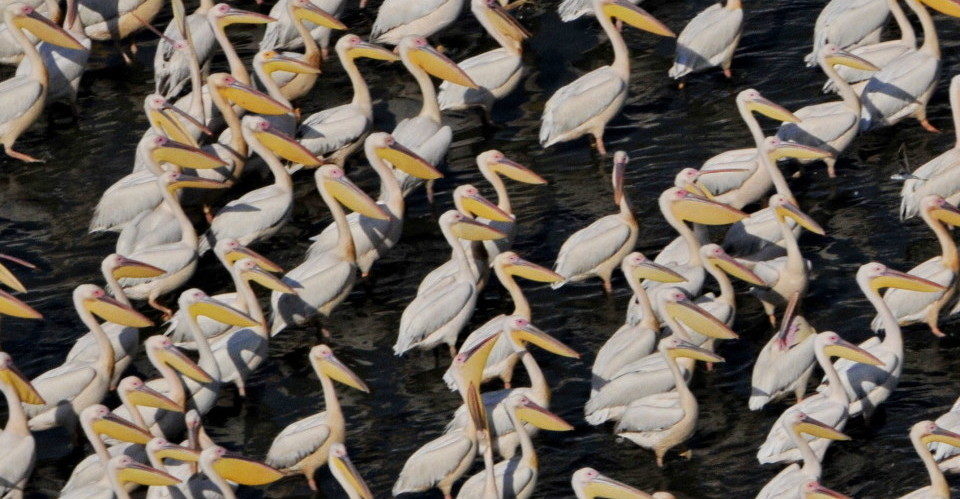People around the world value wetlands for many reasons: as a source of water, grazing for animals, fish for food, as well as other materials or simply as a place to relax and enjoy nature. By monitoring the status of wetlands and their species, we ensure that these values are safeguarded and restored – for humans and nature alike.
Since 1967, we have coordinated the International Waterbird Census (IWC), the largest and longest running citizen-based global waterbird count in the world. Every year in January, over 15,000 people in more than 100 countries around the world contribute their time to count waterbirds in over 25,000 wetlands. This network of professional and amateur counters is led by IWC coordinators, who provide the waterbird count data to the IWC. In the African Eurasian Flyway, the IWC is integrated with other waterbird monitoring schemes through the Waterbird Monitoring Partnership, to provide the most scientifically accurate data.
We collect and review data and provide knowledge on the size of over 2,000 waterbird populations worldwide. Through our online Waterbird Population Estimates database this knowledge is made publically available for use in the management of wetlands and government policies that impact on wetlands.
The waterbird count data also contributes to identification and subsequent adaptation of monitoring and management of important wetland sites and has highlighted populations of waterbirds in need of conservation at a flyway scale.
50 Years of the International Waterbird Census – Let’s Make it Count!
 2016 marks the 50th count of the IWC and is an important moment to celebrate the achievements of the global partnership of national and local agencies, organisations and individuals who volunteer their time and efforts as national coordinators and volunteers to collect the information.
2016 marks the 50th count of the IWC and is an important moment to celebrate the achievements of the global partnership of national and local agencies, organisations and individuals who volunteer their time and efforts as national coordinators and volunteers to collect the information.
Linked to this event, Wetlands International has launched a global campaign to inspire and promote action for the conservation of waterbirds and wetlands along the world’s flyways. We invite all governments, experts, organisations, companies and volunteers to work with us and step up efforts to conserve wetlands for waterbirds. Find out how to get involved!

